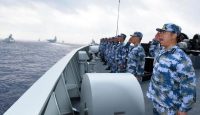
Nancy Pelosi in Taiwan: What lies ahead for China and the US?
Dr Yu Jie
US House Speaker, Nancy Pelosi’s, visit to Taiwan has plunged China-US relations into a new low as the reservoir of trust forged between the two sides over the last 40 years appears to be almost exhausted.
However, her move will likely not result in the full-scale crisis across the Taiwan strait that some hawkish voices in both Beijing and Washington believe. Instead, Beijing will most likely offer a combination of military posturing toward the US navy and economic sanctions on Taiwanese agricultural and manufacturing products in order to send a clear bellwether to any future potential visits by high-level Western political figures.… Seguir leyendo »













